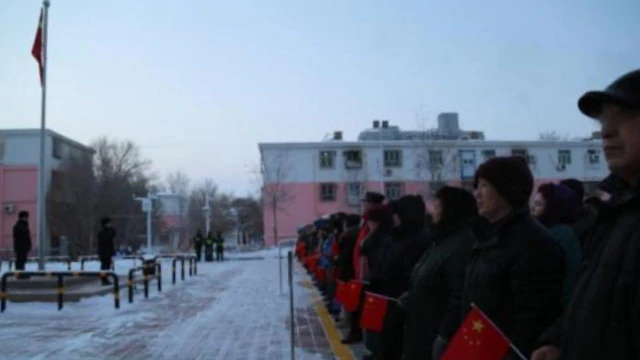Countless members of this Christian new religious movement are blacklisted in China and are harassed and persecuted for years, pressured to renounce their faith.
by Lu Xiu
Once they are arrested for practicing their faith, most members of The Church of Almighty God (CAG)—the single most persecuted religious movement in China—are oppressed for the rest of their lives. As soon as their names are put on file by China’s law enforcement institutions, they are subjected to continuous surveillance and control. At least 26,683 CAG members suffered harassment in 2019: they had their personal information collected, were forced to sign “statements of guarantee” to renounce their faith, required to be photographed and recorded on video, or obliged to give their biometric data, like fingerprints, blood, or hair.
A CAG member from the Xinjiang Uyghur Autonomous Region told Bitter Winter that she had been continuously surveilled and harassed by the police since her arrest in 2012. The police often took photos and videos of her and ordered her to attend flag-raising ceremonies every day and indoctrination classes at the community committee office. She encountered numerous obstacles to get a business license, rent a place to live, or when travelling.

When she returned from Xinjiang to her hometown in the central province of Henan in June, the woman was immediately summoned to a local police station for questioning. “It’s so challenging to practice your faith in China. The police have relentlessly harassed me for mine,” she said.
A CAG member in the southern province of Guangdong was visited at home by the police on April 8, who questioned her about her faith, pressuring her to give it up through indoctrination, and warned not to contact other CAG members again. The woman was arrested for her belief in 2014 and was subjected to intense forced indoctrination for over two months. She has been monitored since then. From 2017, government officials call or visit her at least once a year.
“Officials say that those who don’t give up their faith will not be removed from government’s blacklists and will continue to be controlled and monitored,” the believer explained. The same officials told her that her dossier could be removed from the provincial Public Security Department’s files, and she would not be “disturbed” again if she renounces and stops practicing her religion.

Long-term harassment and persecution take their toll on CAG believers: Many are forced to flee their homes, while others are driven to suicide, unable to bear constant intimidation and threats. Some die unexpectedly as a result of police harassment.
A couple from the northeastern province of Jilin are both members of the CAG. The police had surveilled them since 2003 when they were first arrested for practicing their faith. In March, police officers came to their home to accompany them to a local police station to take their saliva samples. The husband, 67, was sick with flu and was receiving an intravenous treatment at the time the police arrived. The couple tried to persuade the officers that the man was too ill to go anywhere, but they continued to pressure them. As their argument was heating up, the man began feeling weak and lightheaded, and his eyes were rolling back. Instead of calling an ambulance, the officers took the wife outside to take a sample of her saliva. When she returned, her husband was dead.
The family believes that the man would still be alive if the police had not come to harass him. “My father-in-law was harassed to death,” the dead believer’s daughter-in-law told Bitter Winter.
Source: Bitter Winter



